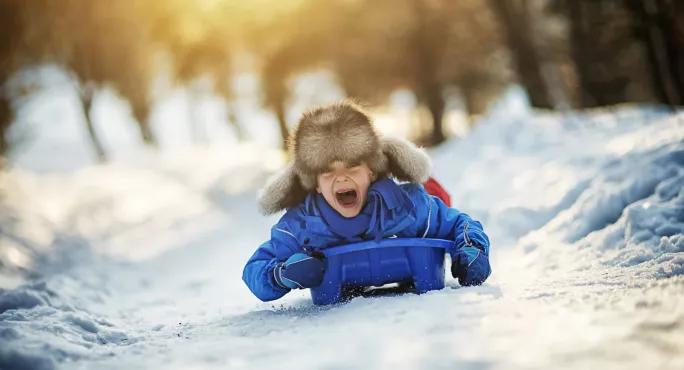I think I was in Primary 7, the last year of primary school. The snow had fallen all the silent night and lay in the garden. Thick layers of it with the fat snowflakes still dropping down. You looked up and couldn’t see the sky. You cracked open the door and the cold wind grabbed at you. We were sitting in the kitchen listening to Kingdom FM (the Kingdom of Fife, that is) - me, my little sister and my mum. The voice on the radio was reading out the names of local schools: Caskieberran, Collydean, Rimbleton. All closed. All blessed with a snow day.
And then came the magical moment. The voice on the radio announced the name of our school: Pitcoudie. As he said it, my heart jingled. I swear I could hear sleigh bells.
But of course, there was no Microsoft Teams or Zoom or Kahoot in 1995. A snow day was a snow day - there was no threat of your teachers chapping at doors or dropping off textbooks or shouting algebra through the curtains. They were some of the greatest days of our lives, those snow days. When you explored forests, and made ice slides, and came in after long afternoons with pink cheeks and frozen fingers. Making new friends and taking risks and forging memories.
What a cruel, depressing thought that these formative moments might now be stolen from the current generation. And all because we have learned that we can teach from home, if we have to.
Snow business: ‘S’no day like a snow day’
Snow fair: Coronavirus should mean the end of snow days forever
Snow time: Watch how snow days make headteachers sing
There was a big guy that lived across the street from us - everyone called him Parky. He was a year or two up from me, so he was at the high school already. As soon as they could, all the kids in the street came piling out their houses, heavy with scarves and hats and gloves. Snowballs forming in your hands before you’d got to the garden gate. Revelling in that first crunching footstep on fresh grass. Seeing who could roll the biggest snowman. Who could hit who in the head. Parky got a hold of me and tripped me and kicked snow up my back and down my trousers. My first “snow bath”. An initiation into boyhood. I had made it - I was alive.
Technology has obviously brought great blizzards of change to the art of education. Much of this change is welcome and necessary. I would argue, however, that robbing children of their snow days is a technological innovation too far. If the snow lies so thickly that school buildings cannot open safely, then surely our children should be out in that same snow. Imagine yourself as a child - sitting in the glare of a laptop, while the snowdrifts merge and melt outside, your head filled with worksheets and webinars. How could you concentrate? How could you forego the very nature of your childishness, and ignore this natural wonder?
Perhaps this is something we need to plan a little strategically for in schools. Teachers might prepare themed activities, geared towards making the most of the outdoor learning opportunities of a snow day: encouraging more family involvement, turning off the screens and getting outside our homes and our comfort zones. This would allow pupils to make progress, along with honing their snowball technique.
In the 2020-21 school year, perhaps there has been enough upheaval and turmoil. Enough bending of normalities to acquiesce to disturbances outwith our control. Students are already having to operate with face coverings, social distancing, and enforced periods of self-isolation. If snow falls, let us eschew technology for a day. If it lies, let us embrace spontaneity and childishness. Let it snow - and let children have their snow days.
Alan Gillespie is principal teacher of English at Fernhill School in Glasgow
